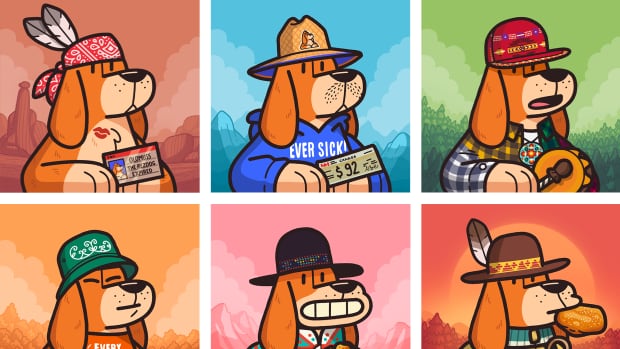
Neqotkuk couple want more Indigenous artists to pursue NFT market | CBC News
A Tobique First Nation (Neqotkuk), N.B., couple want more Indigenous artists to enter the world of non-fungible tokens (NFTs) as they say it’s an excellent way for artists to sell their digital products.
An NFT is a digital asset that cannot be replicated, and unlike cryptocurrencies like bitcoin, each NFT has a unique value.
Bronson Nicholas and Mandy Perley are developing an NFT coaching business and plan to offer a six-week course to teach Indigenous artists to package their own art, music and knowledge into NFTs.
“We really just want to bring our people with us and bring them with us into this new technology and allow them to make money on it,” said Perley, 24.
The Wolastoqey couple are still developing their business model. Part of their NFT package is an unique art piece, access to a music video NFT, a private community and a course teaching Indigenous artists to package their own NFTs.
Nicholas said Indigenous artists should use NFTs because the artist receives 10 per cent of each sale in perpetuity, as part of their royalties.
“This is a global system that allows us to share these beautiful creations with the world and if we can do that perhaps we can have our culture live forever on the block chain,” said Nicholas, 25.
The couple are self-taught in the world of NFTs. The pair has a vision of one day creating an Indigenous marketplace in the metaverse called the “Rezerverse.”
Tamara Goddard, co-founder of 400 Drums, an Indigenous NFT art project company that launched in December and packages hand drums with phosphorescence into NFTs, applauds the idea.
“What we love about other Indigenous projects is that we become valuable together,” said Goddard, from Saulteau First Nation.
Goddard said it’s important for her and business partner, David Fierro, to create the drums in a culturally safe way.
She said they work with at least eight other Indigenous NFT businesses.
“Our community of Indigenous projects, we try and take care of each other,” said Goddard.
She said the web business world has a lot of scam artists. Their company was burned by a developer, so Goddard recommends Indigenous artists get educated, deal with recommended businesses and tap into the network of Indigenous NFT businesses.
“To have Indigenous artists digitize their work and sell it online, I call that diversifying your income stream,” said Goddard.
She said they host free NFT discussions on Discord and YouTube. Goddard said she hopes more Indigenous artists come on board because they can authenticate the Indigenous art that comes into the metaverse and it’s another way to make money.
This content was originally published here.


